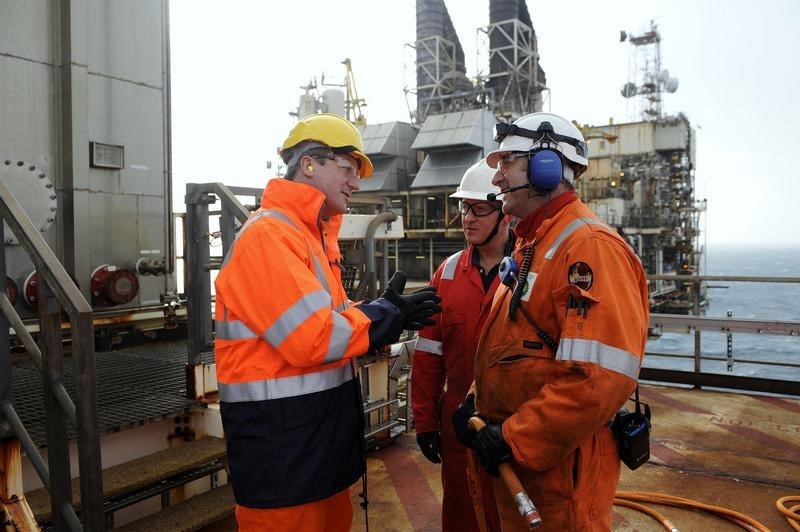LONDON (Reuters) - British industrial output was much stronger than expected in April thanks to a surge in oil and gas production, but manufacturing was hit by a decline in pharmaceuticals, official data showed on Wednesday.
Industrial output rose by 0.4 percent on the month, above economists' average forecast for a 0.1 percent increase, after rising by 0.6 percent in March, the Office for National Statistics said.
The increase will raise hopes that Britain's economy picked up speed in the second quarter.
But output for manufacturing fell 0.4 percent, hit by a 6 percent fall in pharmaceuticals largely unwinding a similarly sharp jump for the sector in March.
Recent business surveys and data have suggested the pace of economic recovery should pick up in the current quarter after slowing sharply at the start of the year.
Data released on Tuesday showed Britain's trade deficit narrowed more than expected in April, adding to hopes for a pickup in the pace of growth in the second quarter.
The ONS revised up its estimate for industrial output in the first quarter to 0.2 percent from 0.1 percent. However, it said this had no significant impact on its estimate of gross domestic product for the period.
Oil and gas extraction rose 8.7 percent on the month, the fastest increase since February 2014 as North Sea installations came back on line.
Compared with a year ago, industrial output was 1.2 percent higher, its biggest increase since January. But manufacturing output was just 0.2 percent higher than a year ago, the weakest rise since September 2013.

Some economists say that uncertainty around the time of the May 7 national election may have weighed on manufacturers building capital goods, while the strength of sterling against the euro could hamper exports to the currency bloc.
A business survey last week showed British manufacturing activity inched higher in May after hitting a seven-month low in April, but strong domestic demand was largely offset by weak exports.